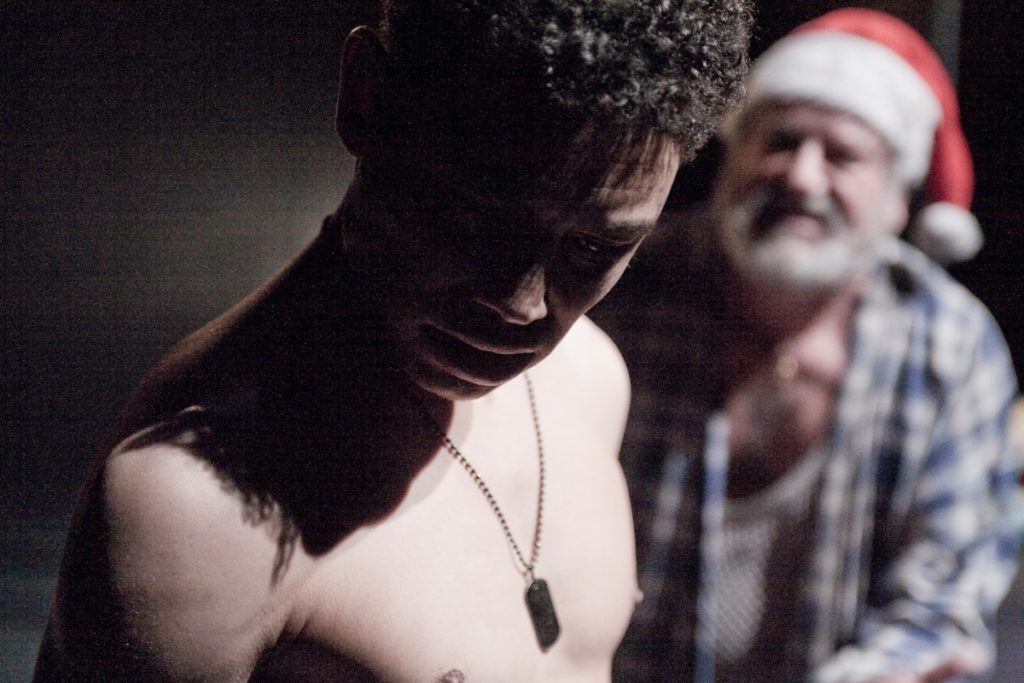!Viva! Festival Round-Up: Film, Theatre & Art from Latin America
May 11, 2016

Photo Credit: HOME Manchester
The !Viva! Festival at HOME offered an exciting opportunity for the people of Manchester to delve into Spanish and Latin American Culture, with films, art and theatre from across the Hispanic world. Our critics give an insight into the second half of the festival.
XXY – 4/5
By Louis Bradley
XXY follows the story of an intersex teen struggling with her identity and sexuality. On the surface, Alex (Inés Efron) has all the characteristics of a curious and extroverted young woman. When a surgeon comes to stay with Alex and her family to discuss her surgical options, she meets his son, Alvaro (Martín Piroyansky) and the teens spark up an inevitable romance and the true colours of Alex’s intersexuality, along with her desires, are revealed. All the while Alex’s father Kraken (Ricardo Darín) struggles to get to grips with how to deal with Alex in the most gentle of ways. What this film encapsulates is the struggle of the outsider, one that is given a safe haven by the sense of family that pervades this film. Normality and the ‘perfect family’ are both concepts which are removed of their credibility as a result. XXY allows us to take a step back from our sociological framework of gender, giving us a far more modern perspective on something that is by no means modern in its existence. Lucía Puenzo paints a beautiful yet vulnerable picture of something rarely documented in mainstream film. We’re constantly faced with Billy Elliot and Danish Girl-esque happy endings, as if to say, ‘it’s easy to divert gender norms’. This films’ ending, without giving too much away, is a far more realistic stance on something that is deserving of far more films. It dismisses gender norms, with Alex acting as the prophet for the misfits of a gendered, heteronormative society. An ethical breakthrough with a side of teenage angst. If XXY doesn’t get you thinking then who knows what will.
Chamaco (Kiddo) – 3/5
By Amy Hills-Fletcher
Chamaco, by Cuban playwright Abel Gonzalez Mello, was first staged at the Cuban National Theatre and has gone on to be translated into many different languages. This English language production at HOME, as part of the !Viva! festival, is its UK debut. A scratch performance (meaning it was unrehearsed), Chamaco tells the story of a young man living in Havana and his struggle to survive in the face of poverty. The political context is obviously key to the social issues at the heart of the play. Although the Cuban government is Communist and technically there should not be disparity between rich and poor, it is evident that corruption is rife and that economic inequality prevails. The play is very dark and the final act does not end on a positive note by any means, however, there are moments of genuinely funny black comedy. David Fleeshman’s performance as the drunken, meddling uncle was particularly good and offered some relief from the dark subject matter. I was not entirely convinced by the re-working of the tale into Mancunion English – I felt I was missing something that was distinctly Cuban through this translation. Having said this, I was extremely impressed with the fluidity with which the scratch performance worked – there were many times it was obvious the actors were improvising when something hadn’t quite worked (there was a particularly nice improvisation from David Judge as the protagonist, when he was offered a cigarette and another accidentally dropped on the floor, which he smoothly picked up and pocketed with a smug look). Although I was rather unconvinced by the concept of its translation into English, overall it was well executed. The way the story is constructed is gripping and the political-social context was interesting.
Carancho – 4/5
By Ella Milburn
In this thriller, Ricardo Darín plays Sosa, a lawyer caught up in Argentina’s insurance industry, which is booming, grimly, on the back of more than 8000 deaths on the road annually. This tension between the big bucks to be made and the very real loss of life behind each compensation case is the film’s main driving force, with scenes of grief and pain sickly infiltrated by lurking lawyers, ‘vultures’, always on the look out for clients. This is how Sosa meets Luján, a young doctor and functioning addict. Luján’s straight-talking, no bull-shit integrity in the face of Sosa’s morally corrupt profession is refreshing. However, the development of her character throughout the film began to irk me. From a strong female lead, wonderfully holding her own in hair-raising situations, she becomes apparently totally dependent on Sosa. Her reduction to a quivering wreck is ostensibly because her and Sosa are in love, but somehow I just didn’t buy it. Perhaps it had something to do with the fact it was the second film that week in which I’d seen Ricardo Darín play the rugged older man pursuing a younger, initially reluctant woman; that painfully stereotypical pairing that I can’t help let grate on my nerves. I’m not about to argue that every film should be a revolution in feminism, but it seemed oddly incongruous that in spite of depriving the viewer of any cliched happy endings he felt inclined to subscribe to the oldest gender relations in the book. Nevertheless, Carancho excels in its palpable edge-of-your-seat tension. The camera work is outstanding, with visceral and shaky close-ups that are truly unsettling as well as action scenes that pack a brilliant punch. Fiendishly dark, gripping and totally ruthless, this film is a must-see for all film noir and thriller fans.
Filed under: Art & Photography, Film, TV & Tech, Theatre & Dance

Comments